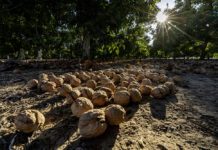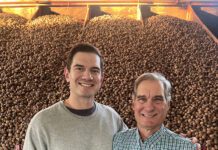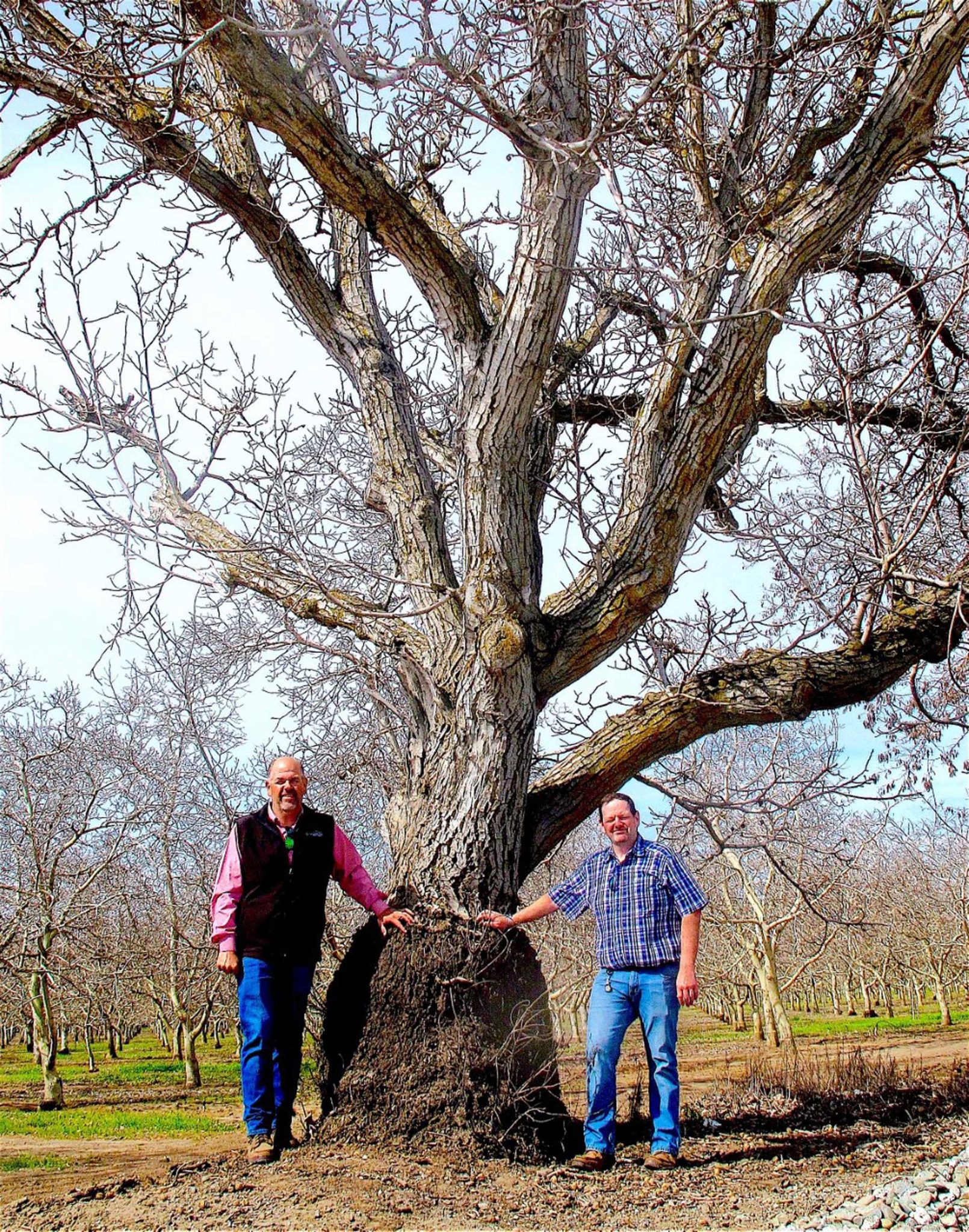
When Mike and Pat Andersen graduated from California State University, Chico (Mike with a degree in plant sciences in 2001 and Pat in ag business two years later), the brothers had developed a business plan for their fourth-generation walnut, prune and cattle ranch in Vina, Calif.
However, the duo had no idea at the time that their humble beginnings would grow into one of the industry’s most successful nut growing, shelling, processing and marketing companies in the west.
But the Andersen’s story starts much earlier than that.
“Our great-grandfather bought the original acreage right here where we are today in 1904 and planted it in row crops,” Mike said. “Then our grandfather planted the family’s first walnuts in 1944, the year our father, Frank, was born.”
Pat adds, “That’s how we became tree farmers really, my grandpa started planting walnuts and prunes, so at that point they became tree farmers.”
Both Mike and Pat grew up on the Vina ranch, both attending the local elementary school and high school.
“We are truly homegrown farmers working the family farm,” Mike said. “Something that is becoming less and less common in the agriculture industry.”
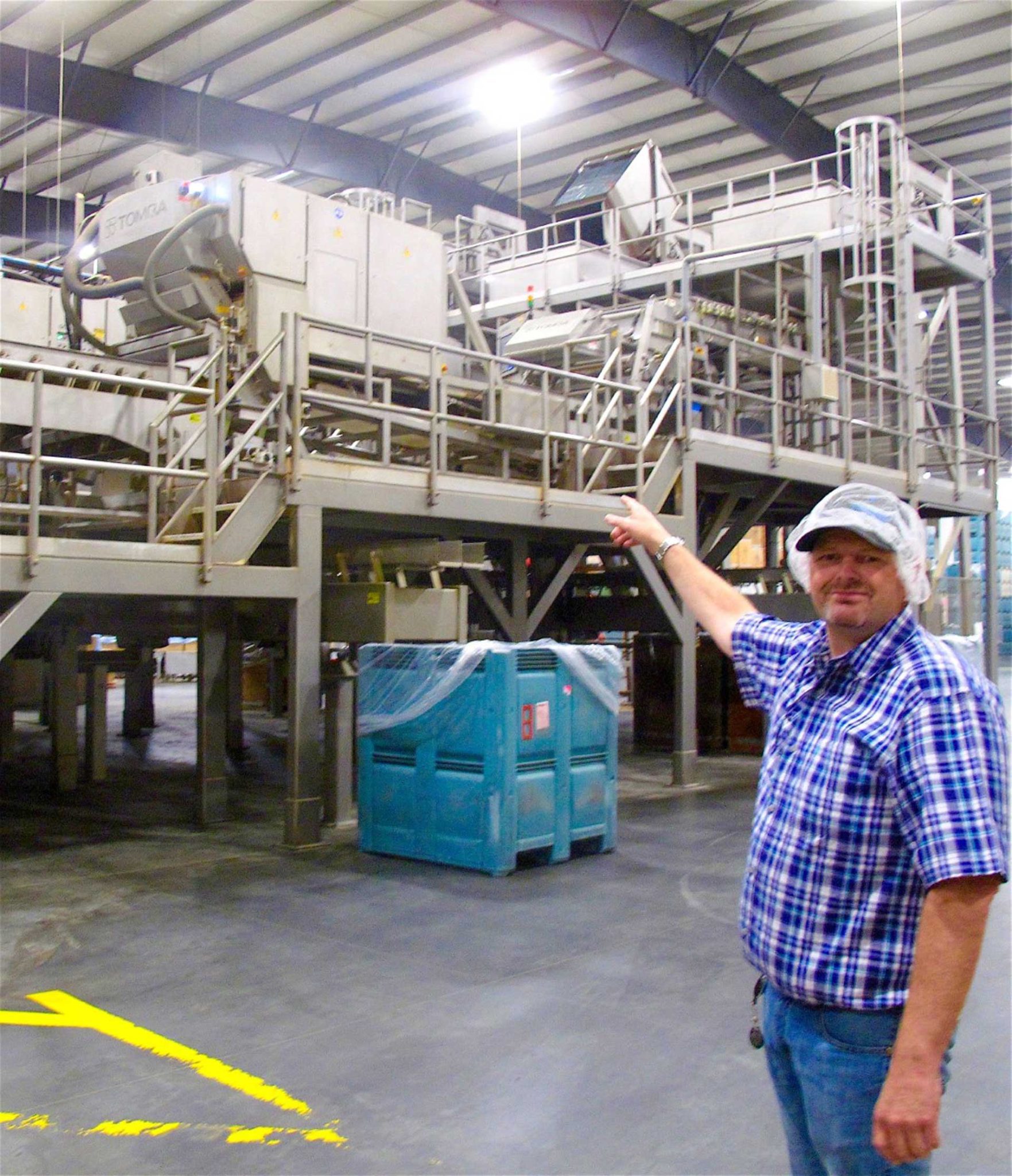
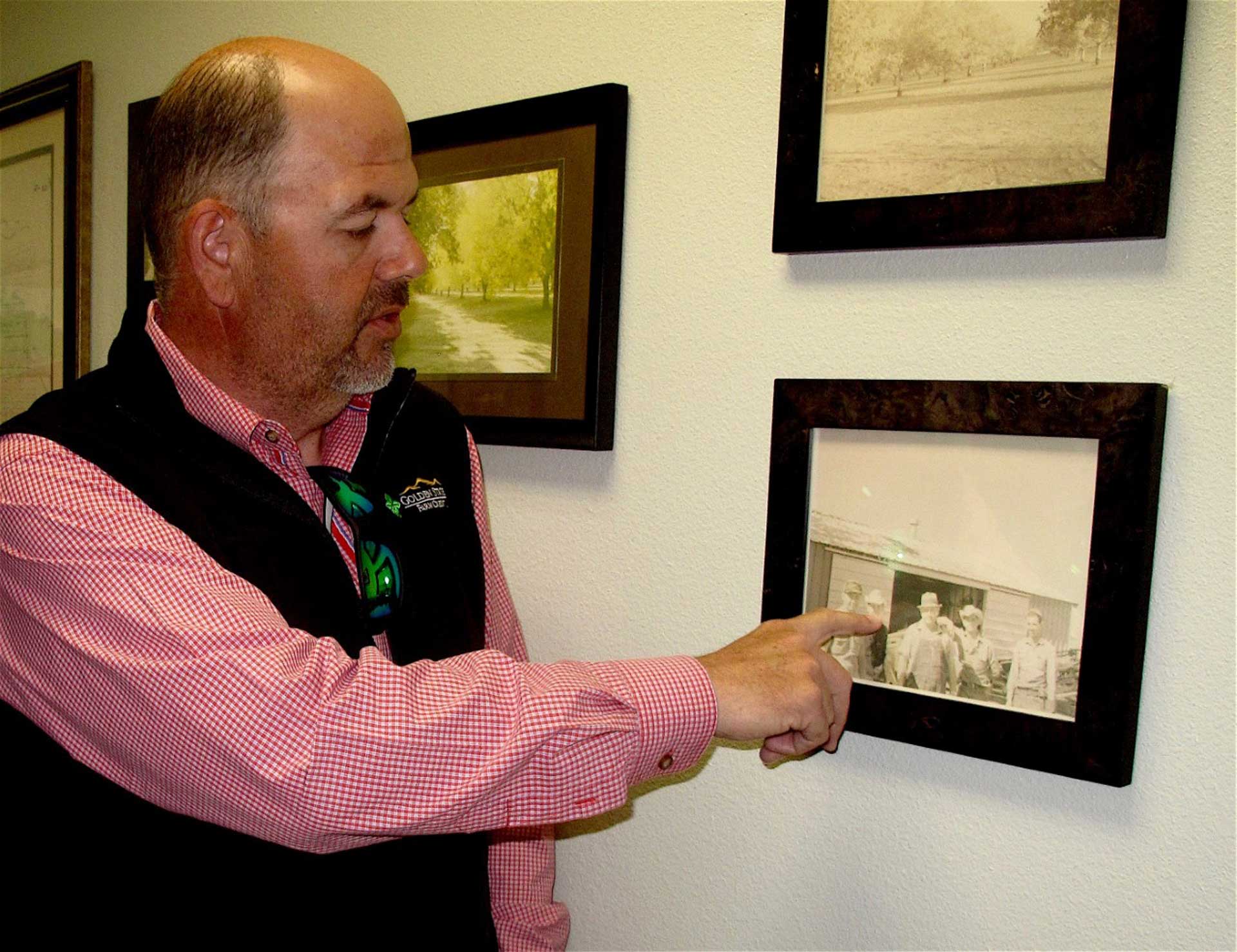
They worked on the ranch from the time they could find ways to help and always knew their lives would follow in their father, grandfather and great-grandfather’s footsteps.
“I was only 24-years-old when Pat and I started processing our own walnuts and those for a neighbor grower. We built a tiny plant and sold all our nuts the first year and just kept going from there,” Mike says. “Those first few years it was about a million pounds annually.”
The brothers’ success just kept growing, and rather quickly, to three million pounds, then six and eight and up.
“We are still growing today, this is our 20th season of processing and I’m now 45 and Pat 43,” Mike adds. “We don’t see any slowing down any time soon.”
Mike operates the farming, marketing and processing side of things, while Pat runs the operation’s finances.
Currently, Andersen & Sons farms 2,500 acres of their own nuts, with about 180 outside growers.
“We have a lot of really good partners,” Mike said.
One of the big changes the brothers undertook as they transitioned into running the company was upgrading to modern technology, both at the plant and in the orchard.
“Our mom, Glenda, did all the bookwork on paper by hand,” Pat explains. “While I was in college, I talked her into working on a computer and using QuickBooks. But she was never a fan.”
Frank Anderson is semi-retired.
“He spends half the year up in Coeur d’Alene, Idaho and half his time here at home,” Mile said.
Glenda passed away a few years back, but in her memory, the brothers named a line of their most current products after her.
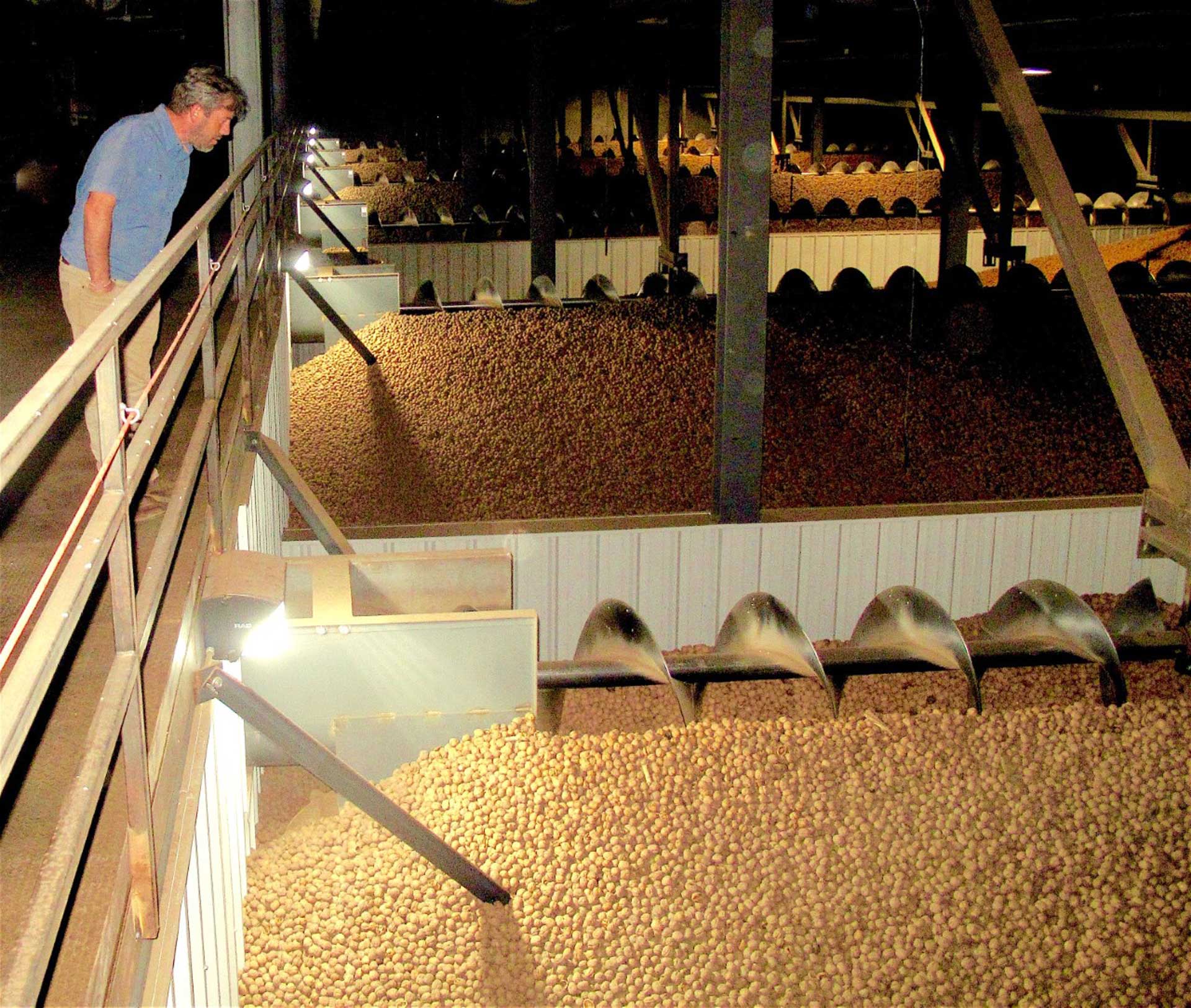
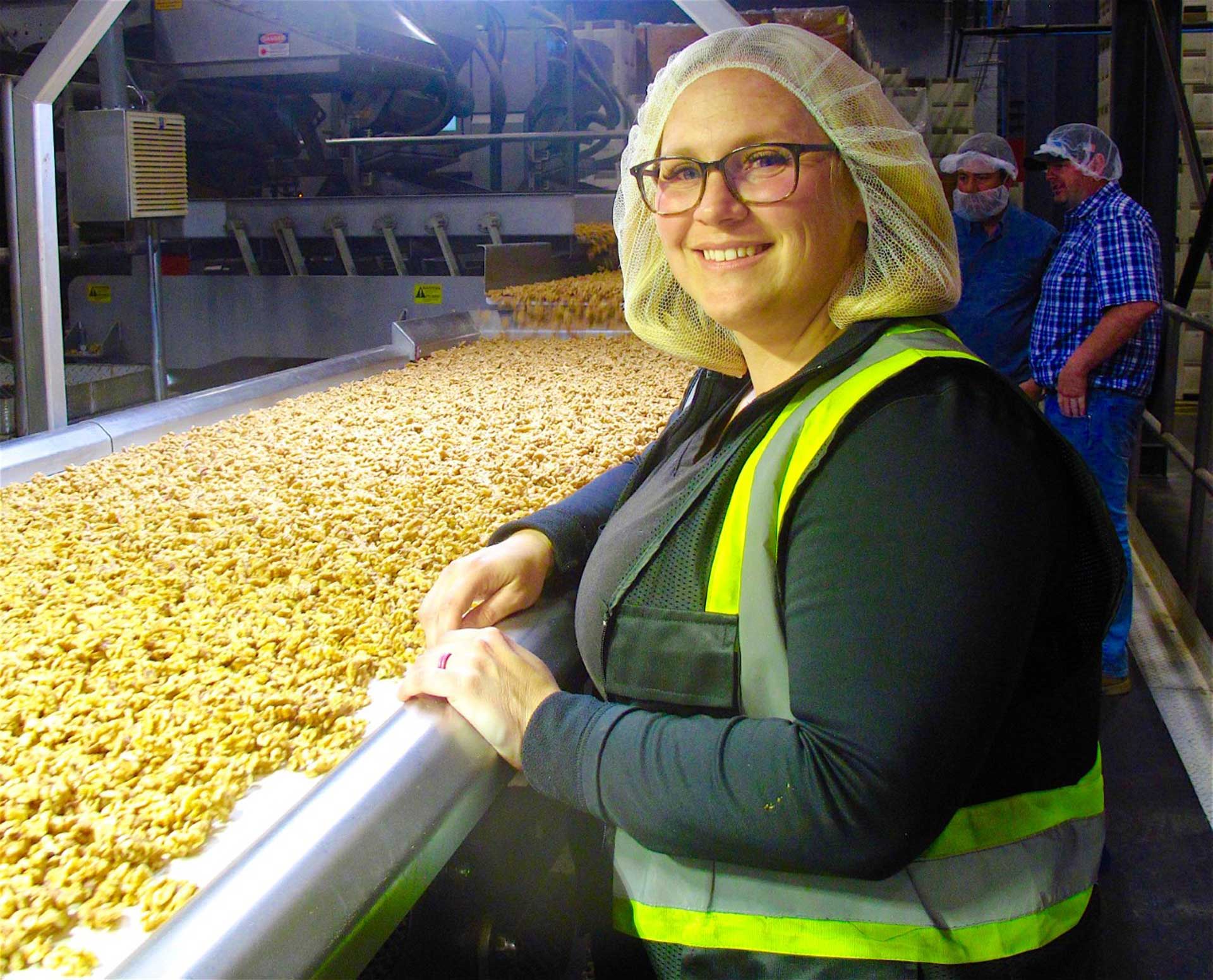
The company’s website says it best: “In homage to Glenda Andersen, the Andersen brothers’ mother, we developed Glenda’s Farmhouse brand. Glenda’s Farmhouse was designed to provide 100% whole ingredients and healthy alternatives to cooking at home.”
The line offers packaged organic walnuts, pistachios, pecans, almonds and cashews.
“We are also introducing a flavored line of products and a line of plant-based protein substitute made out of walnuts to substitute hamburger,” Mike said. “We do just about everything anymore if it has to do with the nut.”
The marketing focus is mainly domestic, much of it direct to retail channels.
“We do a lot of private labels,” Mike said. “We have a lot of big-name customers, such as Costco, Walmart and Trader Joe’s, and many of the supermarkets. For instance, we have 15 items on the shelves at WinCo.”
The original business plan developed by the brothers 20 years ago “tapped out at around 15 million pounds,” said Pat. “That occurred at year four.”
That leads Mike to believe anyone can find success if they have the right work ethic.
That work ethic for the brothers includes always doing what they say they are going to do.
“That isn’t always the case in business. Our reputation is very important to us, and a reputation of honesty is essential to our customers, our name and brand,” Mike explained.
As the current almond and walnut market is struggling a bit right now, he said, the demand at Andersen & Sons supersedes their supply.
That is one of the business’s keys to success. “That is how we keep growing. We have a demand domestically that makes it possible for us to accept new growers and have a home for their nuts,” Mike added. “It’s about supply and demand and keeping the right balance.”
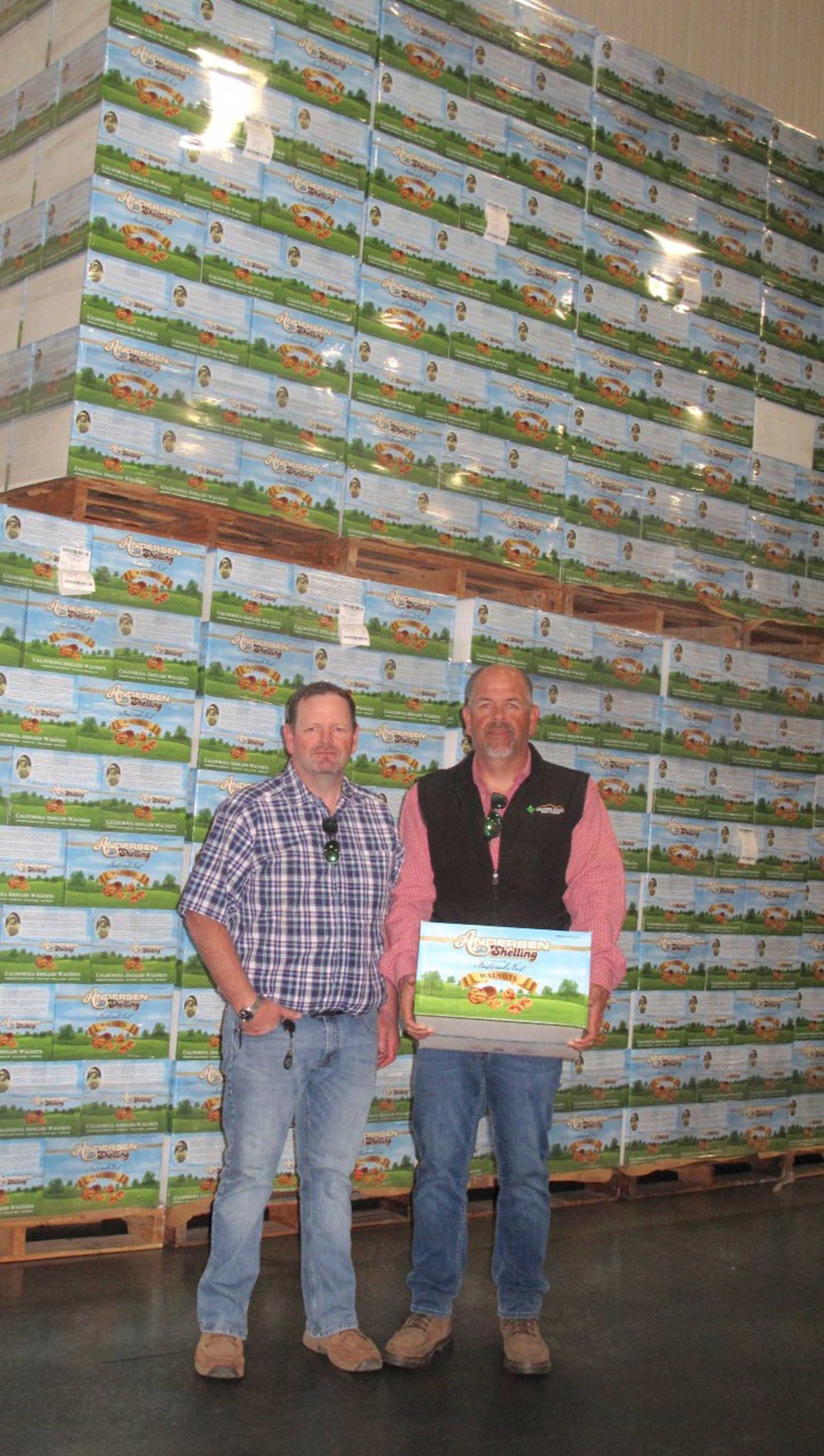
The Plant
Built in 2017, the Andersen’s storage, shelling, processing and packaging plant is very close to being fully automated; however, quality control is always done by skilled, specially trained employees to keep this, the most important point in the process, up to the company’s standards.
“We designed the plant knowing what we wanted. Working with contractors, we were able to construct a plant that provides farm-to-table products that are as fresh as possible,” Mike said.
Pat and Mike explain one of the thoughts behind their design was to make it possible to do everything in one place.
“We can bring in the nuts from the grower, store them in the shell, hull, dry, process, pasteurize and put them in a retail container, either our own or a label for someone else, whatever the customer wants, and then ship it,” Mike said. “Providing for our growers and buyers in a timely, fresh and honest manner is one of our prime goals.”
The plant’s pasteurization system, the Stein JSP-1, uses a steam and heat treatment method which eliminates salmonella and other pathogens without compromising the integrity of the raw nut.
Currently, the plant can put out 30 to 40 tons of shelled walnuts an hour.
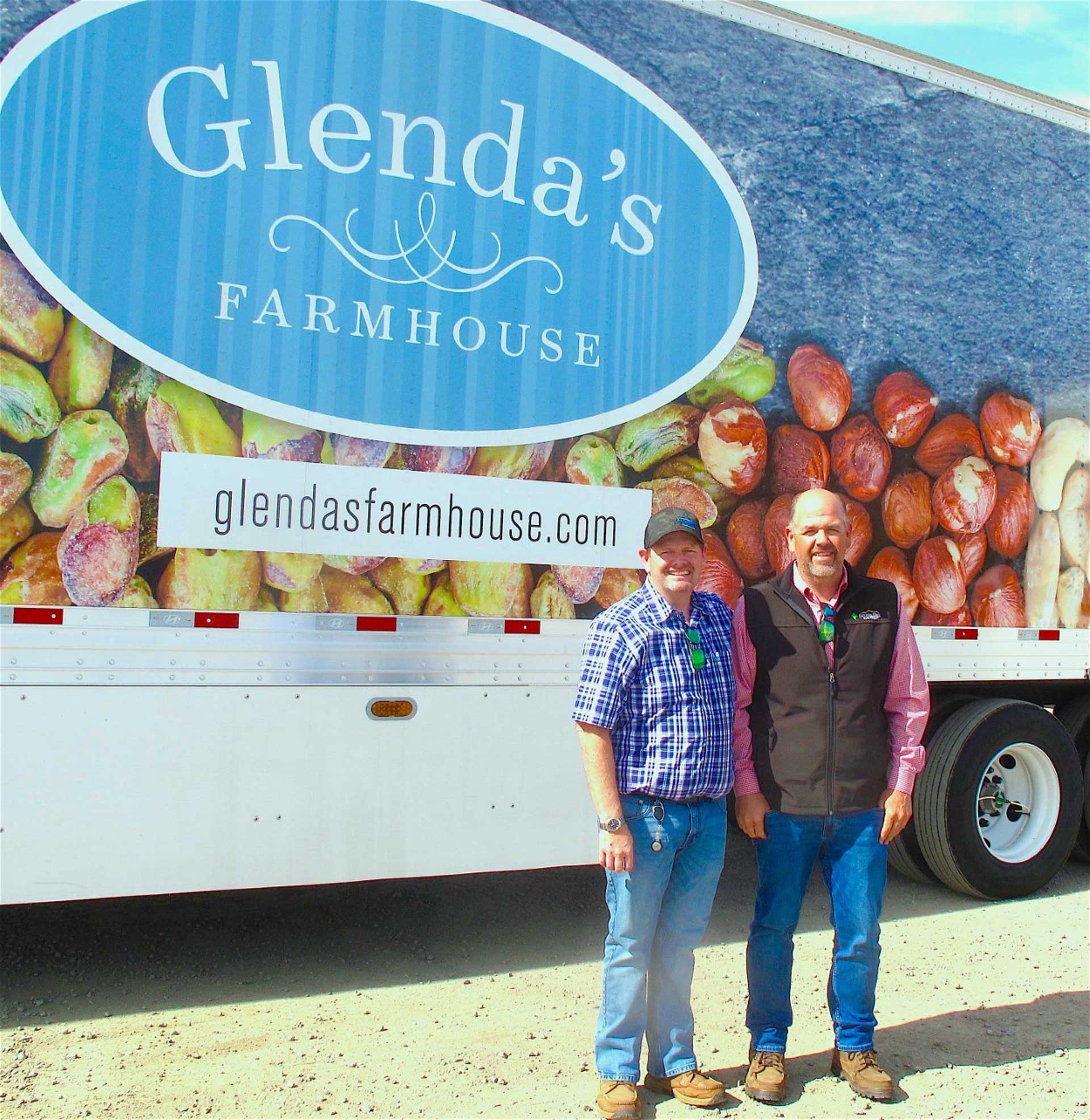
The Farm
The Andersen’s grow walnut varieties Chandler and Howard on VX211 rootstock.
As do most walnut growers, they fight the problems of blight, Huskfly, navel orangeworm and Bot disease. “For a lot of those problems, the dry weather we are going through is a good thing. That and orchard sanitation are helping a lot to reduce pest and disease pressure,” Mike said.
The Andersens are also committed to being “bee friendly.”
“We provide our bees with forage and water buckets, and only spray at night when the bees are in their hives,” he added. “We are about 50% towards receiving our Bee Friendly certificate.”
The Andersens also grow almonds, about 450 acres, in Durham.
The Future
According to Mike, the processing side of the business has expanded enough to concentrate on what they have built and streamlining the processing and efficiency.
“We have a great group of growers, and we will just grow with our growers. Most of them have young trees and will grow 5% to 10% a year,” Mike said. “I was on a call with a grower this morning and he just bought another 60 acres in walnuts and asked if we would accept it and I said sure.”
With walnuts being a healthy nut, he sees more and more people turning to plant-based alternatives, and walnuts products can fill that need.
“I believe this is one of the markets we can look to now and in the future,” Mike said. “We have to continue to be open to all possible marketing potentials in the nut industry.”
Mike explained Andersen & Sons is not the “norm” in the walnut industry as the majority of their marketing is domestic, about 75% domestic and 25% export.
Pat and Mike agree that it appears the company’s future will continue to be focused on domestic sales. “It really depends on the year, but we are finding the domestic market just keeps growing and the demand is following suit,” Mike said. “During the pandemic when people were staying home and cooking more, we were extremely busy keeping up on the demand.”








